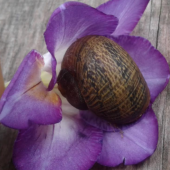Abstract. This study investigates whether children at an urban place-based environmental education camp can develop three dimensions of eco-character development after week-long participation: Head (knowledge), Hand/Feet (action), and Heart (care/connection). Using a community-based and inquiry-driven curriculum, campers practiced the roles of an arborist, ecologist, and environmental steward. Fifty-five Campers were assessed on all three dimensions using a 10-question pre/post-survey. An overall increase in content knowledge, relationships with nature, and motivation for pro-environmental behaviors were found. Outdoor environmental education summer camps and other out of school experiences may be the new avenue for educators and instructors to consider when trying to promote positive eco-character development in future generations.
Continue Reading
Abstract: Ecoliteracy can be defined as an understanding of natural systems and connections between biotic and abiotic factors within sustainable future. Green consumerism is an observable side of ecoliteracy. The aim of this study is, therefore, to examine the long-term effect of environmental education programmes intended for in-service teachers in terms of behavioural change. The teachers were joined ecopedagogy-based education programmes funded by TUBITAK (The Scientific and Technological Research Council of Turkey) in Turkey and were followed up after seven years. The methodology of the study was mixed method within a case study. Quantitative data were collected by a survey and analysed by R statistics. Qualitative data were analysed by content analysis. It was found that the green consumer behaviours of in-service teachers have improved in the long term. However, it is needed more follow up studies within different time frames and country comparison studies in the future.
Continue Reading